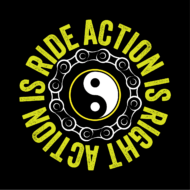Came across the beginnings of what so far is a great series of articles on ‘Public philosophy’ over at The Point Magazine by Agnes Callard. In the first article, Is Public Philosophy Good?, Ms. Callard writes:
“Recently, there have been rumblings of a Great Escape, one that goes by the name of “Public Philosophy.” Public philosophy includes, but extends beyond, the pop philosophy found in books such as Logicomix, Sophie’s World or The Matrix and Philosophy. Pop philosophy, which has parallels in pop physics, pop history and pop psychology, presents philosophical figures or concepts in an accessible way; the “pop” genre more generally, informs nonprofessionals of developments in some field
I guess I would qualify as what she later goes on to detail as a ‘public philosopher’. I have the interest, but not (yet anyway) the academic background and training in the subject. Ms. Callard continues:
“It is one thing to share information about philosophy and another to offer non-philosophers a way of participating in the activity. Public philosophy aspires to liberate the subject from its academic confines: to put philosophy into action. Is that a good thing?”
I think it is. While obviously not a substitute for intensive learning and academic study, I think Public philosophy could only serve to inspire more thought and creativity within the public sphere and day-to-day life. In addition I would think the normalization of the practice of philosophic thought and inquiry could motivate future generations to engage with philosophy on a more serious, academic level.
In the second article in the series, The Emotion Police, Ms. Callard declares:
“Who could possibly have the gall to tell the entire human race what it should and should not feel? Philosophers, that’s who!”
Ms. Callard goes on to detail four other philosophers who have targeted specific emotions that, in their observation, need to be dealt with in order to facilitate better living. Regret, anger, grief and empathy all get the once over with the commonality being that rational thought applied to each of these emotions would allow for better management thereof, and better society overall.
“These four thinkers rightly point to the variety of ways in which negative emotions turn our lives upside down, make us miserable and divert us from pursuing what is good.”
-Agnes Callard
Ultimately, to wrap up this excellent second article, Ms. Callard turns her sights on hatred as the emotion that we could probably all best do without and have difficulty justifying.
I will have to be content with my ‘amateur’ status in the philosophy game for now and hope one day for a shot in the ‘pro’ ranks. In the meantime, I’ll continue to absorb and enjoy what I can via the ‘public’ channels, and am looking forward to the rest of the articles in Ms. Callard’s series.
